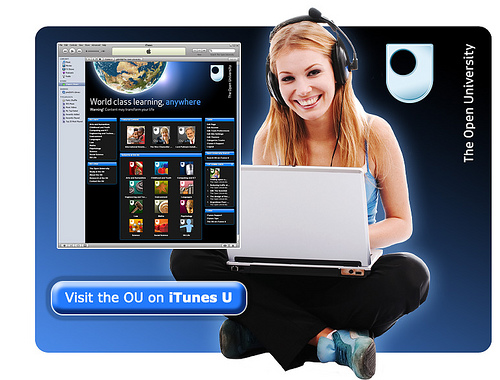Open Education Resources
The advent of Open Education Resources (OERs) has seen a significant change in higher education practice. Professor Martin Weller tracks its development and previews his forthcoming OER Research Hub project.
 About the author: Professor Martin Weller, Institute of Educational Technology at The Open University. His publications include: The Digital Scholar: How Technology Is Transforming Scholarly Practice. (2011, Basingstoke: Bloomsbury Academic); Virtual Learning Environments: Using, Choosing and Developing your VLE. (2007, Oxford, UK: Routledge);Delivering Learning on the Net: the why, what and how of online education. (2002, Open and Flexible Learning. London, UK: RoutledgeFalmer).
About the author: Professor Martin Weller, Institute of Educational Technology at The Open University. His publications include: The Digital Scholar: How Technology Is Transforming Scholarly Practice. (2011, Basingstoke: Bloomsbury Academic); Virtual Learning Environments: Using, Choosing and Developing your VLE. (2007, Oxford, UK: Routledge);Delivering Learning on the Net: the why, what and how of online education. (2002, Open and Flexible Learning. London, UK: RoutledgeFalmer).
E-mail: martin.weller@open.ac.uk
Blog: The Ed Techie
Web: http://iet.open.ac.uk/people/m.j.weller
It seemed like a noble, but commercially foolish idea – for universities to ‘give away’ their teaching content for free. Yet the open education movement has expanded rapidly over the past decade and is now reaching a level of maturity and sustainability. This means it is ripe now to start researching some of the movement’s key assumptions and beliefs. This is what a new project at the Open University aims to do.
The Open University is arguably in a unique position to consider the nature of what ‘open’ means in higher education.
When it was founded it had a particular definition of open to mean open access, which was realised through not setting any formal educational qualifications for entry, and using a part-time, distance education model. But with the advent of the Internet and digital technologies, what it means to be ‘open’ with regards to education has begun to change.
In particular the advent of Open Education Resources (OERs) has seen a significant change in higher education practice. These can be whole courses, parts of a course, lecture notes, video lectures etc. The key characteristics are that they are free to use, and have a copyright licence, which encourages reuse.
The OER movement (although even calling it a movement can be contentious) grew out of earlier work around ‘Learning Objects’. As e-learning moved into the mainstream around the year 2000, educators and institutions found they were creating often expensive learning resources from scratch. There was a relentless logic, that with the digitisation of content, these resources could be shared between institutions.

However, the learning object approach failed to take hold. Part of the problem of learning objects was that it often seemed alien to everyday practice, so that getting educators to share their content in learning object repositories proved to be a barrier. Unlike sharing research findings in published journals, or sharing teaching resources informally within an institution, there was no real incentive or established practice for sharing teaching material on this scale.
In 2001 the OER movement began when MIT announced its OpenCourseWare initiative, the goal of which was to make all of the learning materials used by MIT’s faculty in the school’s 1,800 courses available via the Internet where they could be used and re-purposed as desired by others without charge.
 Learning on Screen
Learning on Screen